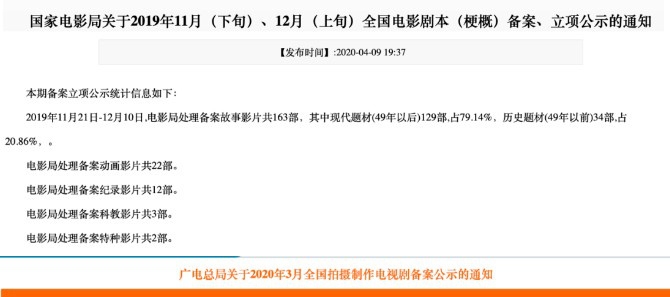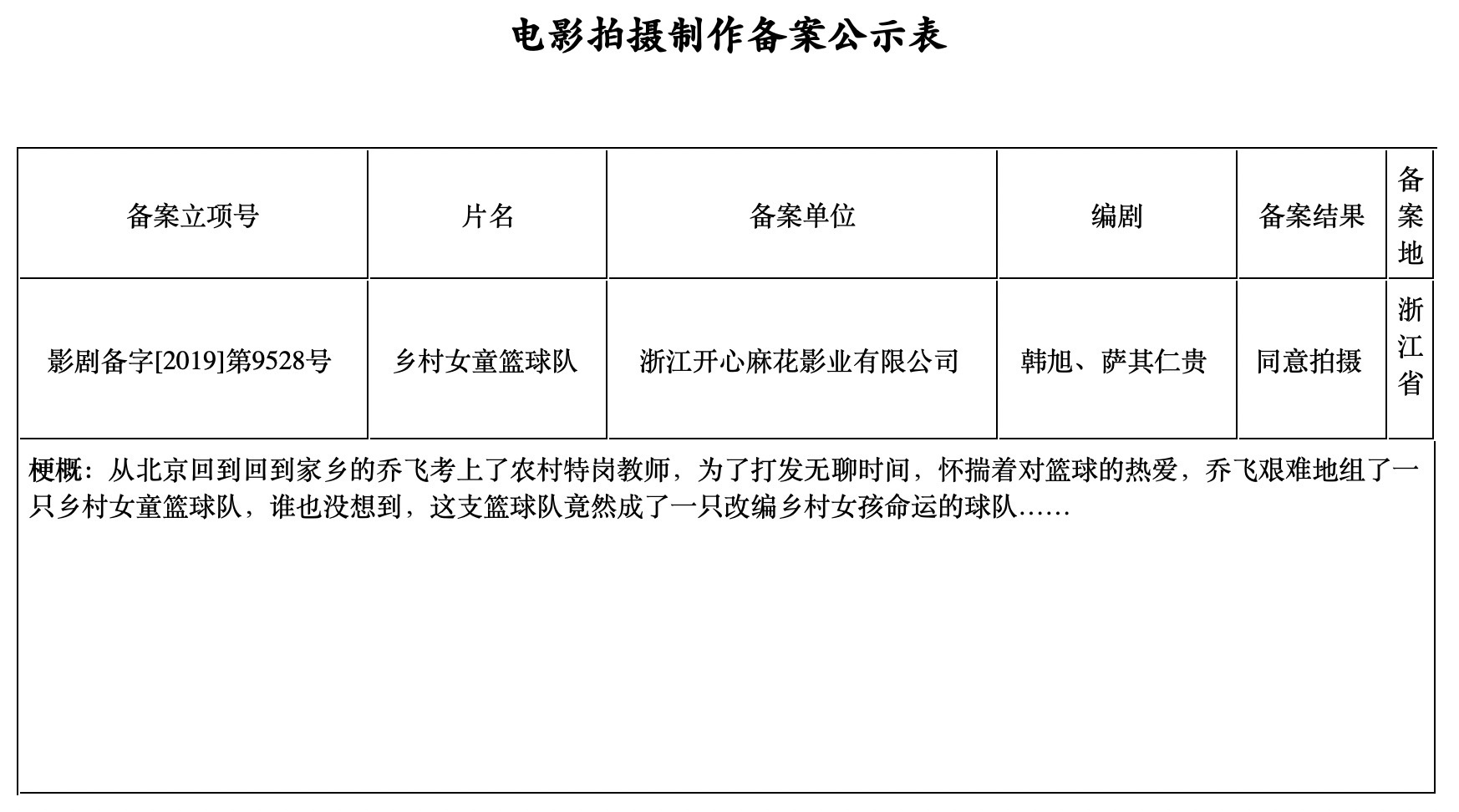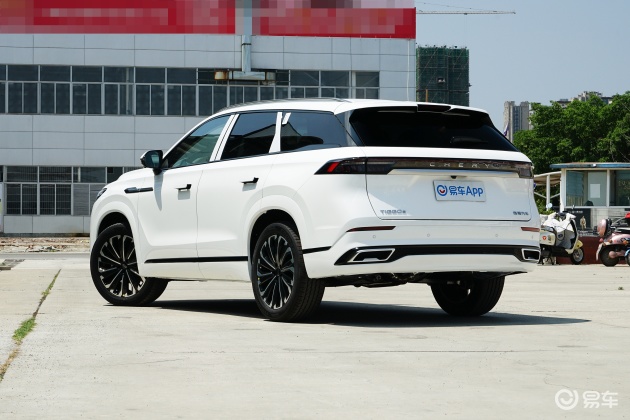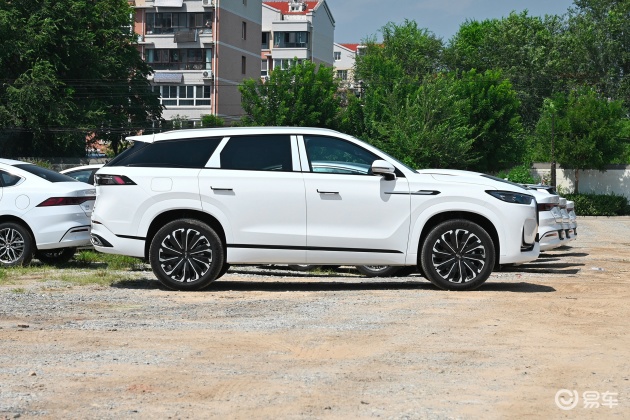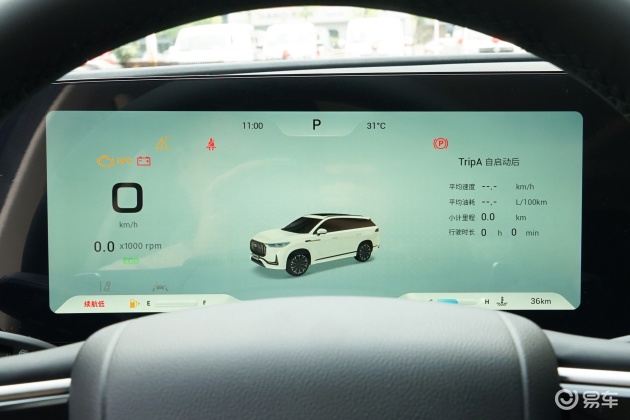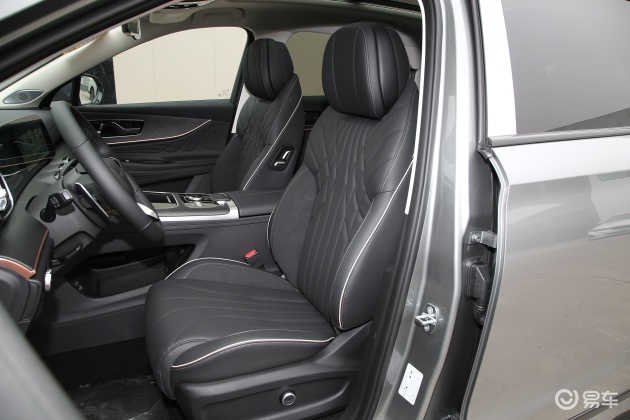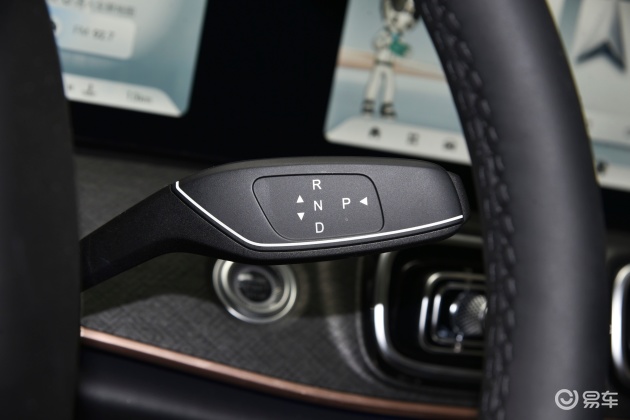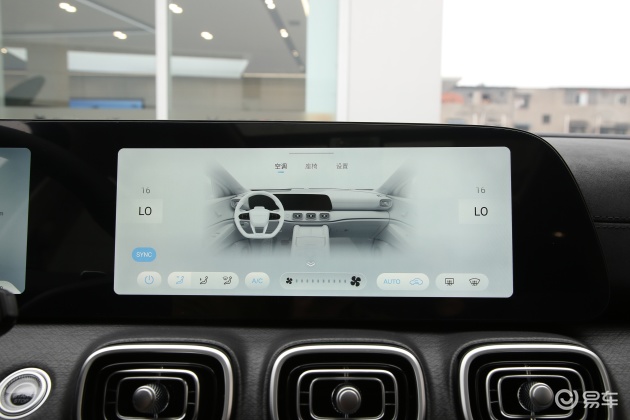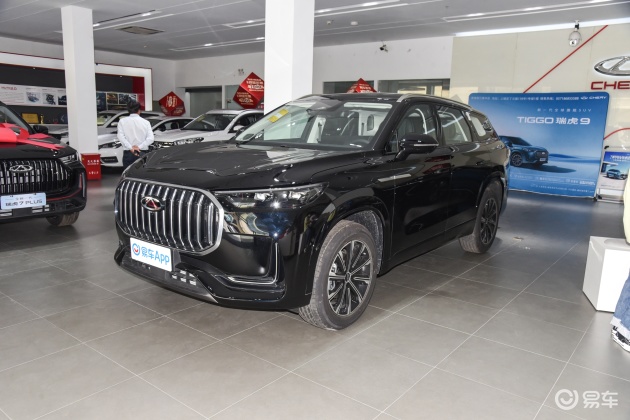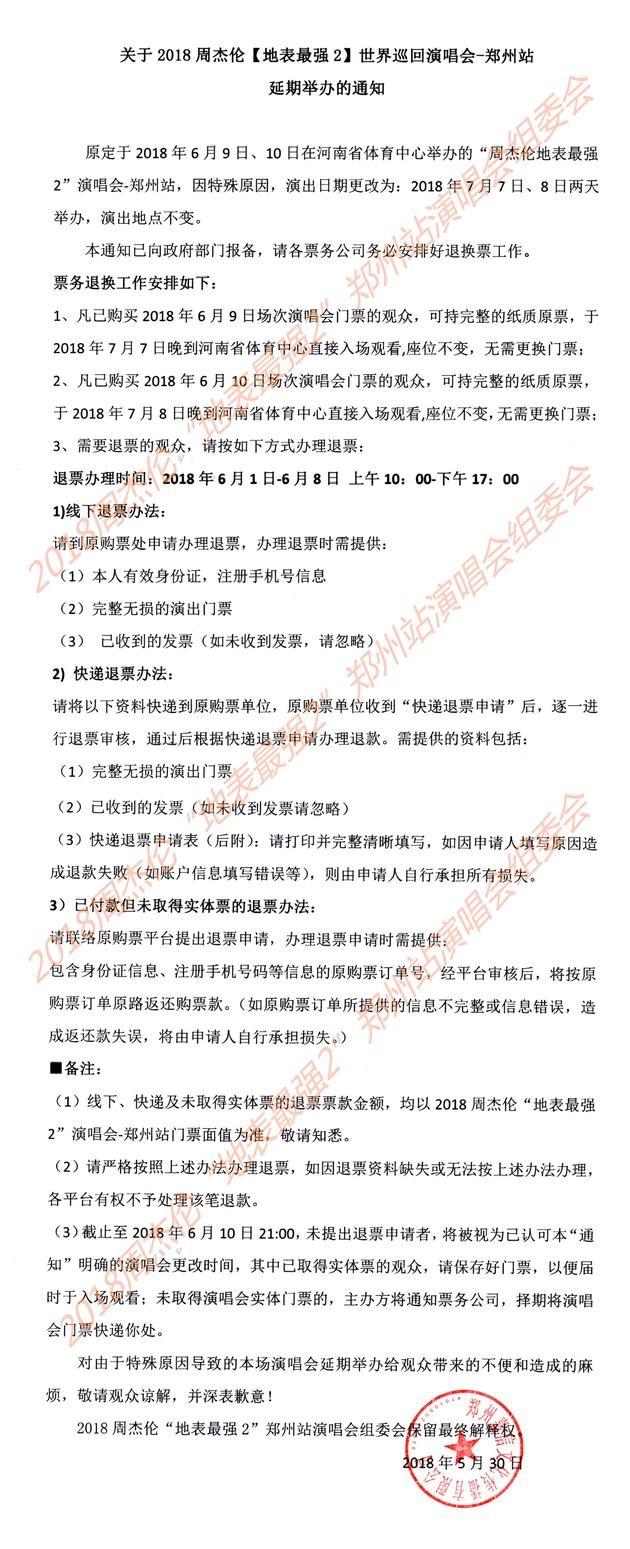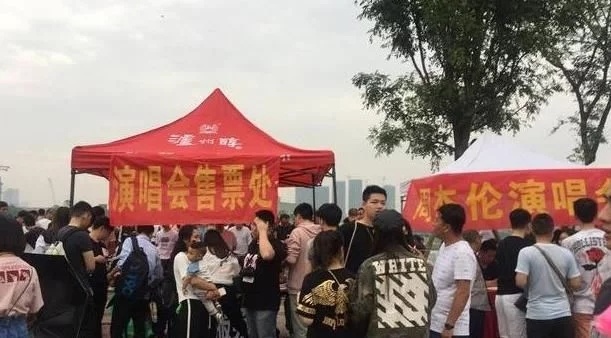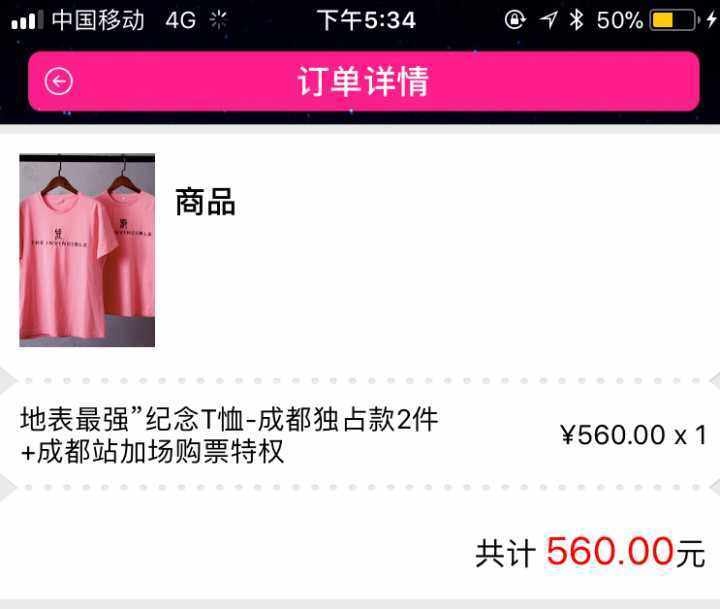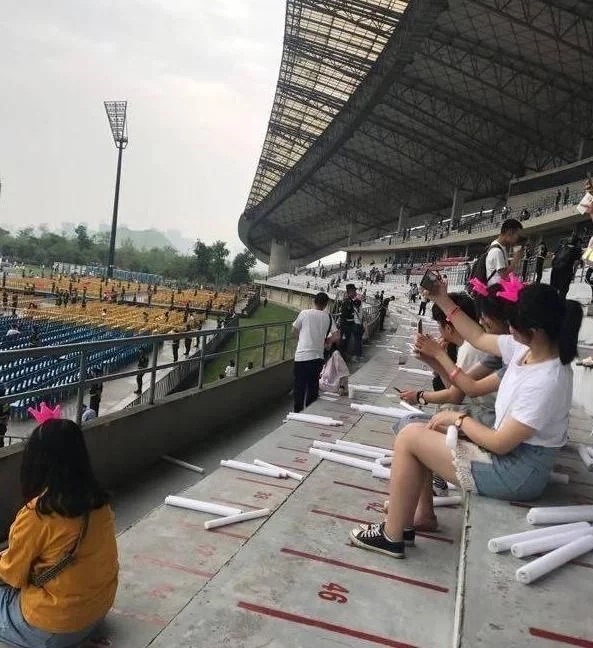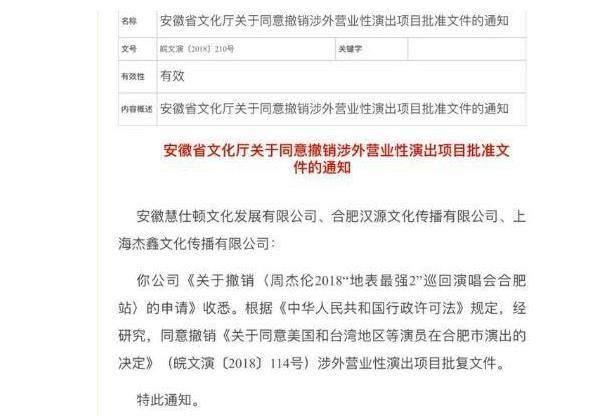First, the process of formulating three policy documents in Beijing?
In order to implement the "Guiding Opinions of the General Office of the State Council on Deepening Reform and Promoting the Healthy Development of the Taxi Industry" (Guoban Fa [2016] No. 58) and the Ministry of Transport, MIIT, Ministry of Public Security, Ministry of Commerce, SAIC, AQSIQ, and the Cyberspace Administration of the People’s Republic of China "Interim Measures for the Administration of Online Booking Taxi Business Services" (Order No. 60 of the Seven Ministries) (hereinafter referred to as the "two documents"), combined with the actual situation of this city, the "Implementation Opinions of the General Office of the Beijing Municipal People’s Government on Deepening Reform and Promoting the Healthy Development of the Taxi Industry" (hereinafter referred to as the "Implementation Opinions"), "Beijing Online Booking Taxi Business Service Management Implementation Detailed Rules" (hereinafter referred to as the "Detailed Rules") and "Beijing Private Passenger Through the implementation of the policy documents, we will steadily promote various reforms, promote the healthy, stable and sustainable development of the taxi industry, and provide the public with safe, convenient, comfortable and economical personalized travel services.
The drafting of the policy document began in June 2016. The entire drafting process fully reflects the spirit of scientific decision-making, reform and innovation. It is a process of concentrating wisdom and gathering public opinion. It is a process of in-depth investigation and research and summarizing practical experience. It is a process of focusing on studying and improving the reform policy of the taxi industry in this city and promoting the healthy, stable and sustainable development of the industry. First, the municipal party committee and municipal government have attached great importance to it and established a leading group for deepening the reform of taxis, which has conducted several special studies on the reform and development of the industry, and comprehensively and comprehensively promoted the deepening of the reform of taxis; second, it has conducted in-depth research on the situation of the taxi industry in this city and domestic and international big cities, analyzed existing problems, and more than 20 functional areas of business have participated in the research and drafting work according to their duties, implemented the spirit of the national document, and formulated relevant rules and procedures in combination with the actual situation in Beijing, providing a solid foundation for the formation and implementation of policy documents; third, the city’s policies and regulations focus on giving local governments the scale and total amount in accordance with the "two documents", supplementing the license conditions of online car-hailing platforms, vehicles and drivers, the business scope, area and duration of online car-hailing platforms Authorization in terms of ride-sharing regulations, administrative penalties, formulation of laws and regulations and standards, etc., combined with the actual situation of this city, has been further refined; fourth, in the process of drafting policy documents, public opinions have been solicited from the public, and opinions have been widely listened to by some deputies to the National People’s Congress, members of the Chinese People’s Political Consultative Conference, experts and scholars, taxi companies and drivers, individual taxi businesses, online car-hailing platform companies, drivers and passengers. According to the feedback opinions and suggestions, the relevant policy documents have been continuously revised and improved; fifth, in the process of formulating industry access conditions, handling procedures, etc., attention has been paid to professional consultation, expert argumentation, legality, and fairness review. Experts have objectively, independently, scientifically, and responsibly put forward argumentation opinions, and the drafting group has carefully studied and adopted them.
During the process of soliciting public opinions on the policy document exposure draft, it has attracted great attention from the general public and all walks of life. During this period, a total of 8,825 valid feedback and suggestions from the public were received, 9246. Among them, 8,345 were from websites, 469 were from e-mails, 8 were mailed, a total of 9,234 were sent, 2 and 3 were from telephone, 1 and 9 were from letters and visits. After sorting out the 9,246 opinions and suggestions, they mainly focused on three aspects. First, the qualification conditions and management of online car-hailing vehicles (3,367, accounting for 36.42%); second, the qualification and management of online car-hailing drivers (2,698, accounting for 29.18%); third, the number of taxis was regulated (1,292, accounting for 13.97%). The above three items totaled 7,357, accounting for 79.57%. In addition, a total of 1889 articles, accounting for 20.43%, were made in regulating private passenger car sharing, cracking down on illegal operations, and standardizing online car-hailing business behaviors. Among the opinions, there were 7736 expressed opinions, accounting for 83.7%, of which about 60% were in favor; there were 1510 suggestions, accounting for 16.3%. Comprehensive analysis of the overall situation of soliciting opinions, the relevant municipal departments carefully conducted a review and study, and revised and improved the three draft documents. A total of 125 amendments were made in the three policy documents, of which 77 were made in the "Implementation Opinions", 40 were made in the "Detailed Rules", and 8 were made in the "Sharing Opinions".
Main amendments: First, in promoting the transformation and upgrading of the industry, the expression "Revise the technical specifications of cruise cars and improve the technical standards of vehicles" is added; second, the original standard of online car-hailing vehicles "vehicle displacement not less than 2.0L or 1.8T" is adjusted to "vehicle displacement not less than 1.8 liters", "vehicle wheelbase not less than 2700 mm" is adjusted to "vehicle wheelbase not less than 2650 mm"; "7-seat passenger car displacement not less than 2.0 liters, wheelbase not less than 3000 mm, vehicle length greater than 5100 mm" is removed from the restriction of "vehicle length greater than 5100 mm"; third, the age condition of online car drivers is changed from "age male 60 years old, female 55 years old" to "not reached the statutory retirement age"; fourth, the original "vehicle installation is in line with the state and the city The expression "vehicle satellite positioning device with driving record function, emergency alarm device, the technical performance of the vehicle meets the requirements of operation safety and relevant standards of the public security department" in the relevant regulations is changed to "The vehicle is equipped with a fixed vehicle-mounted satellite positioning device with driving record function and emergency alarm device that meets the relevant regulations of the state and this city, which can send real-time location information to the supervision platform and public security organs, and real-time alarm information to the public security organs"; the fifth is to add "non-operating vehicles of organs, enterprises, institutions and social organizations shall not engage in online car-hailing operations" and other provisions; the sixth is to modify the online car-hailing freight price to "reasonably determine the online car-hailing metering method, and there shall be no improper price behavior." The seventh is to add "From the date of issuance of this implementation opinion, the online car-hailing platform companies, drivers and vehicles that have already carried out online car-hailing business in this city will be given a 5-month transition period.
Looking at the process of deepening the reform of the taxi industry in this city, it is a process of gathering public opinion and building social consensus. It is a process of striving to achieve scientific and democratic decision-making through relevant arguments and legal procedures, which points out the direction and lays the foundation for promoting the sustainable and healthy development of the industry.
What are the guiding ideology, goals and main content of deepening the taxi reform in this city?
(1) Guiding ideology
Deeply implement the spirit of the 18th National Congress of the Communist Party of China and the Second, Third, Fourth, Fifth and Sixth Plenary Sessions of the 18th Central Committee of the Communist Party of China, deeply study and implement the spirit of the series of important speeches of the General Secretary of the Supreme Leader and the important instructions on the work of Beijing, earnestly implement the decisions and arrangements of the Party Central Committee and the State Council, firmly establish the development concept of innovation, coordination, green, openness and sharing, adhere to the basic idea of giving priority to the development of public transportation and the appropriate development of taxis, and follow the principle of "passenger-oriented, reform and innovation, overall planning and standardization in accordance with the law", actively and steadily promote the reform of the taxi industry in this city, effectively improve the service level and supervision capacity, and strive to build a diversified and differentiated travel service system to better
(2) Work objectives
Promote the integrated development of cruise taxis (hereinafter referred to as cruise cars) and online rental cars (hereinafter referred to as online taxi-hailing), promote the transformation and upgrading of cruise cars, standardize the operation of online taxi-hailing, improve the management and service level of the industry, promote the sustainable and healthy development of the industry, and provide the public with safe, convenient, comfortable and economical personalized travel services.
(III) Main content
Under the framework of relevant laws, regulations and policy documents, this deepening reform is to implement the spirit of the national "two documents", and strive to build a diversified, differentiated and quality travel service system including cruise taxis and online rental cars, so as to provide the public with safe, convenient, comfortable and economical personalized travel services. On the premise of giving priority to the development of public transportation and the appropriate development of taxis, on the one hand, by reforming the management system of the right to operate cruise cars, improving the benefit distribution system, rationalizing the price formation mechanism, and encouraging large-scale operation of companies, we will promote the transformation and upgrading of the industry and improve service quality. On the other hand, we will implement license management for online ride-hailing platform companies, vehicles and drivers in accordance with the law, clarify the positioning of online ride-hailing services, and meet the high-quality travel needs of passengers through standardization.
1. "Implementation Opinions"
The first is to scientifically locate taxi services. Taxi is an integral part of the urban comprehensive transportation system, a supplement to urban public transportation, and provides personalized transportation services for the public. Taxi services mainly include parade, online reservation and other methods. Priority is given to the development of public transportation, appropriate development of taxis, and optimization of urban transportation structure. Coordinate the development of cruise cars and online car-hailing, implement dislocation development and differentiated management, and build a super-large urban passenger transportation pattern with diverse and differentiated services.
The second is to establish a dynamic regulation and control mechanism for the total amount. Implement the strategic positioning of the capital city, comprehensively consider the city’s population, economic development level, air quality, urban traffic congestion, public transportation development level, taxi mileage utilization rate and other factors, reasonably grasp the scale of taxi transportation capacity and the share ratio in the urban comprehensive transportation system, and establish a dynamic monitoring and adjustment mechanism. Carry out the assessment of the total amount of taxis, and prepare the development plan and implementation plan of the taxi industry, which will be implemented after approval by the municipal government.
The third is to deepen the reform of the cruise car. Reform the management system of the right to operate, adhere to the implementation of the free use of vehicle management rights, and the term of the cruise car management right is the same as the vehicle’s scrap age. The new cruise car management rights will be subject to term restrictions, and the operating entity may not be changed without authorization. It is necessary to comprehensively consider all aspects of factors, scientifically formulate a transition plan, and reasonably determine the operating period. Improve the benefit distribution system, encourage, support and guide cruise car operators, industry associations, cruise car drivers and trade union organizations to negotiate on an equal footing, determine the contract fee standard or quota task, and reduce the existing contract fee standard or quota task if it is too high. Straighten out the price formation mechanism, and continuously improve the cruise car freight formation mechanism and the linkage mechanism between freight and fuel prices. Encourage corporatization and large-scale operation, encourage cruise vehicle operating enterprises to integrate resources through mergers, restructuring, etc., and formulate implementation measures for the transfer, transfer, and shareholding of cruise vehicle operators in accordance with the law. Promote industry transformation and upgrading, and realize the integrated development of new and old business formats. Revise technical specifications for cruise vehicles, improve vehicle technical standards, and encourage the development of new energy cruise vehicles.
The fourth is to standardize the development of online car-hailing. The online car-hailing platform company should have online and offline service capabilities, and the relevant basic information and dynamic operation data should be connected to the supervision platform of the relevant departments of the city in real time. The online car-hailing platform company implements the operation right period restriction. The operation period is 4 years, and the expiration can be extended after passing the review. The online car-hailing platform company shall assume the responsibility of the carrier, the responsibility for safety production and corporate social responsibility in accordance with the law, the responsibility for the safety management of vehicles and drivers, and the purchase of relevant insurance to fulfill the responsibility of the carrier. The vehicle shall be a 5-seat sedan or 7-seat passenger car that meets the basic conditions for providing passenger transportation services, has passed the annual inspection of the public security department of this city, has purchased compulsory traffic insurance, third-party liability insurance and passenger accident injury insurance for commercial vehicles, and has the vehicle number plate of this city. The vehicle must meet the latest motor vehicle emission standards announced and implemented by this city, have no unfinished traffic accidents and traffic violations records, and meet the technical specifications of online car-hailing vehicles in this city. For vehicles that have obtained the qualification of online car-hailing, the body must be posted with a special logo for online car-hailing, and the original number plate shall be used. The period of vehicle operation rights shall not exceed 8 years from the date of vehicle registration (or when the mileage reaches 600,000 kilometers). Online car-hailing drivers must be registered with the city, have obtained a driving certificate issued by the city, have not reached the legal retirement age, are in good health, and have not committed more than 5 road traffic safety violations while driving a motor vehicle within 1 year before the date of application, and have not been included in the information database of serious violations of taxis. Individuals who apply for access to the online car-hailing service platform and drive their own vehicles to provide online car-hailing services must obtain the qualifications of online car-hailing drivers and vehicles, and have no other cruise cars or online cars under their names. Online car-hailing platform companies must maintain and protect the legitimate rights and interests of drivers, maintain the stability of the driver team, and sign employment contracts or agreements with their drivers according to law. Online car-hailing provides operation services through online reservation. Reasonably determine the pricing method of online car-hailing taxis, and there shall be no improper price behavior. Online car-hailing platform companies shall strengthen cyber security and information security protection, establish and improve data security management systems, collect, use and protect personal information in compliance with the law, and shall not disclose sensitive information involving national security. The personal information collected and the business data generated shall be stored and used in the Chinese mainland, and the retention period shall not be less than 2 years. Online car-hailing platform companies and drivers shall declare and pay taxes to the tax department according to law.After providing operation services, the online car-hailing company shall issue a special invoice for taxis in this city.
The fifth is to encourage private passenger car sharing. Private passenger car sharing, also known as carpooling and ride-sharing, is a shared mode of travel where the ride-sharing service provider publishes travel information in advance. People with the same travel route choose to take the ride-sharing service provider’s passenger car, share the travel cost (fuel and tolls) of the ride-sharing part, or share free mutual assistance. Private passenger car sharing is conducive to alleviating traffic congestion and reducing air pollution, and this city will encourage and regulate its development. The ride-sharing information service platform provides ride-sharing services, which must comply with the relevant regulations of the state and this city. The connected vehicles must be the city’s number plate, and the number of orders per car per day shall not exceed 2 times. Any enterprise or individual is prohibited from conducting illegal operations in the name of ride-sharing.
Sixth, create a good market environment. Improve service facilities, strengthen the construction of credit system, strengthen market supervision, strengthen legal system and organizational guarantee. Establish the Municipal Transportation Commission, Municipal Development and Reform Commission, Municipal Public Security Bureau, Municipal Human Resources and Social Security Bureau, Municipal Environmental Protection Bureau, Municipal Commerce Commission, Municipal Industry and Commerce Bureau, Municipal Internal Taxation Bureau, Municipal Local Taxation Bureau, Municipal Quality Supervision Bureau, Municipal Communications Administration, People’s Bank of China Business Management Department, Municipal Network Information Office and Municipal Urban Management Law Enforcement Bureau and other departments to participate in and link the joint supervision and law enforcement mechanism and joint punishment exit mechanism, establish an integrated information sharing platform, strengthen real-time supervision of the whole process of law enforcement, investigate and punish acts that hinder fair competition in the market and all kinds of price violations in accordance with the law, and severely crack down on illegal operations, gathering crowds to disrupt social order or inciting organizations to disrupt operation order and damage public interests. Regularly conduct taxi service quality assessments and release them to the public, and accept social supervision. Timely handle complaints about service quality problems, timely expose serious violations of laws and regulations, and protect the interests of passengers.
2. Detailed rules
The first is to encourage the transformation and upgrading of cruise cars. In accordance with the principle of "coordinating, standardizing and orderly development of online car-hailing, encouraging cruise taxi companies to transform and provide online car-hailing services, realizing the dislocation and differentiated operation of online car-hailing and cruise cars, and providing high-quality travel services for citizens", clarify the development orientation and develop online car-hailing in an orderly manner.
The second is to clarify the management requirements of online car-hailing. License management is implemented for online car-hailing platform companies, vehicles and drivers. Operators should assume the responsibility of carriers and have online and offline service capabilities. Vehicles and drivers should meet the corresponding qualification conditions. The handling process and license review procedures and content of online car-hailing service applications are clarified.
The third is to standardize the operation of online car-hailing platforms. Online car-hailing platform companies must ensure that the vehicles and drivers providing services have legal qualifications, and the vehicles and drivers providing services online and offline are the same. It is not allowed to illegally collect, use and disclose passengers’ personal information and sensitive information related to national security. There must be no unfair pricing behavior.
The fourth is to establish a multi-departmental joint supervision mechanism. Strengthen the supervision of the whole process before, during and after the event. At the same time, legal responsibilities are clarified. The "Detailed Rules" will be implemented from the date of issuance.
3. "Joint Ride Opinion"
The first is to follow the principles of public welfare ride-sharing priority, voluntary mutual assistance, safeguarding legitimate rights and interests, truthful ride-sharing information, reasonable cost sharing, and strict prohibition of illegal operations, and to clarify the requirements for the platform to engage in private passenger car ride-sharing services.
The second is to ensure the safety of passengers, clarify the conditions for the development of private minibus service drivers and the obligations that the ride-sharing information service platform should fulfill.
The third is to put forward the opinion that the online car-hailing platform company shall not provide online car-hailing services in the name of ride-sharing and ride-hailing, nor shall it conduct other illegal operation activities in the name of ride-hailing.
III. Why should the Beijing taxi industry carry out total regulation?
The "Guiding Opinions of the General Office of the State Council on Deepening Reform and Promoting the Healthy Development of the Taxi Industry" clearly requires that according to the characteristics of large, medium and small cities, the diverse travel needs of the public, and the development orientation of taxis, comprehensive consideration should be given to factors such as population, economic development level, urban traffic congestion, and taxi mileage utilization rate. Reasonably grasp the scale of taxi transportation capacity and the share ratio in the urban comprehensive transportation system, establish a dynamic monitoring and adjustment mechanism, and gradually realize market regulation.
The city has established a dynamic regulation mechanism for the total number of taxis, making it clear that both cruise cars and online taxis must have a reasonable capacity scale and structure, mainly based on the following considerations:
First, taxis are characterized by the randomness of both parties and the one-time consumption, which makes it difficult to fully realize the marketization and liberalization of competition.
The second is that taxis are passenger cars, which occupy a lot of road resources and have negative externalities such as uneconomical and aggravated traffic congestion.
Third, the vast majority of international megacities (Tokyo, New York, etc.) and domestic megacities implement capacity control for taxis, which is also an inevitable requirement for the development scale and management of megacities.
Fourth, as a super-large city, Beijing is making great efforts to control "urban diseases". In the work of traffic and air pollution control, on the one hand, it implements a clean air action plan, advocates green travel, reduces motor vehicle pollution emissions, improves air quality, and gives Beijing a blue sky. On the other hand, adhere to the public transportation priority development strategy, make rational use of road resources, reduce the intensity of motor vehicle use, and ease traffic congestion.
IV. Why is it stipulated that online car-hailing drivers and online car-hailing vehicles are registered in this city and vehicles in this city?
Mainly consider the following factors:
The first is the development requirements of the functional positioning of Beijing’s "four centers". To implement the urban functional positioning of Beijing’s national political center, cultural center, international exchange center and scientific and technological innovation center is to take the strategic positioning of the capital city as the starting point, fully implement the coordinated development strategy of Beijing-Tianjin-Hebei, build Tongzhou urban sub-centers, orderly relieve non-capital functions, optimize and enhance the core functions of the capital, create a first-class living, transportation, public security and ecological environment, and build Beijing into a world-class harmonious and livable capital.
The second is the requirement to manage "urban diseases" and relieve non-capital functions. One of the main reasons for Beijing’s "urban diseases" is the disorderly and rapid growth of the population, which seriously affects the core functions of the capital. The first thing to manage "urban diseases" is to strictly control the population size, and by 2020, the population will be controlled at 23 million. At the same time, according to the requirements of building a "high-precision" economic structure, urban employment will mainly be developed in high-end service industries and high-tech industries. Taxi is not only a window industry in the capital, but also a labor-intensive industry. Its future development will inevitably involve population size control, industrial development and employment orientation. This is also an objective requirement for managing "urban diseases" and realizing the functional positioning of the "four centers" in the capital.
The third is the requirement to control traffic congestion. At present, the number of motor vehicles in this city has reached more than 5.7 million. The trend of high-intensity use, high-density clustering, and high-speed growth of motor vehicles has not been fundamentally alleviated. Traffic congestion spreads outward from the core area of the city, which has far exceeded the carrying capacity of road resources and the environment. In recent years, the city has continued to implement measures such as total motor vehicle volume control (limited purchase by lottery number) and motor vehicle request management during peak hours on working days (one day less driving per week). At the same time, restrictions have also been implemented on the purchase of cars by non-Beijing citizens and vehicles entering Beijing from other cities. These policies and measures have curbed the trend of increasing traffic congestion to a certain extent and achieved certain governance results. In the future, we will continue to implement comprehensive measures to manage traffic and ease congestion.
The fourth is the requirements of policies and regulations. First, Decree No. 412 of the State Council "Decision of the State Council on Establishing Administrative Licensing for Administrative Examination and Approval Items That Really Need to Be Retained" establishes administrative licensing matters for taxi operation, vehicle operation and driver qualification. Second, Decree No. 60 of the Ministry of Transport and other seven ministries and commissions clearly requires that the urban people’s government can stipulate relevant access conditions according to the actual situation. The city’s policy documents are in line with the objective needs of the capital city’s functional positioning and management of "big city diseases caused by excessive population and function aggregation". Third, the "Regulations on the Administration of Taxi Vehicles in Beijing" clearly stipulates that "taxi drivers must have a permanent household registration in this city". Fourth, taxi management belongs to local affairs, and local governments have the right to make relevant policies and regulations in accordance with laws and regulations.
How do you perceive the regulations on the conditions and displacement standards of online car-hailing vehicles?
Deepening the reform of taxis, many cities have put forward clear standards for the conditions of online car-hailing vehicles (such as displacement and wheelbase, etc.). The main purpose is to set vehicle standards for commercial vehicles, which is a common practice in the transportation industry. It is also necessary to ensure operational safety and improve service quality. The second is to make online car-hailing meet the requirements of high-quality and differentiated services.
The specific standards put forward by Beijing for the vehicle conditions of online car-hailing fully consider the factors of vehicle power, handling, safety, appearance, configuration, etc., and are also conducive to the integrated development of cruise cars and online car-hailing cars. They are in line with the clear requirements of "high-quality service and differentiated operation" in various places according to the actual situation of the city put forward in Document No. 58, which is of positive significance for establishing the image of an international metropolis service window.
How can cruise cars and online car-hailing achieve integrated development?
There are 71,000 taxis in the city (including electric minibuses operated in suburban areas). Since the 1950s, the taxi industry in our city has provided convenient, safe and personalized travel services for domestic and foreign guests and citizens of the city. There are also many advanced collectives such as model workers and the National Pioneer Workers in the industry. During special periods such as holidays, Golden Week and bad weather, transportation management departments and taxi companies organize taxi drivers, industry Communist Party Party members’ fleets and caring public welfare fleets, and "Beijing Taxi Star" and other outstanding drivers organize or spontaneously carry out airport and railway station capacity support, making positive contributions to city operation and domestic and foreign passenger travel. Since August 2015, the industry has promoted the "Internet +" strategy. The "Shouqi Car-hailing" platform created by Shouqi Group has nearly 5,000 online cars, equipped with mid-range and above models, and has 2.18 million registered users in Beijing. Recently, wheelchair-accessible barrier-free online car-hailing has also been launched to provide new personalized services for people with mobility disabilities.
For many years, the passenger transportation mode characterized by the "door to door" of the cruise car has occupied a place in the urban transportation system and met some of the personalized travel needs. Passengers can choose from a variety of methods such as beckoning for a ride, waiting at the station and calling for a ride by phone, and online car-hailing. Due to the implementation of government pricing, the freight rate of the cruise car is still stable in bad weather, morning and evening peaks. During holidays, Golden Week and bad weather and other large passenger flow periods, the cruise car starts to implement capacity guarantee programs at airports, railway stations, etc. to meet the needs of passengers. At the same time, we also see that there are certain limitations and problems in the operation and management of cruise vehicles, such as vehicles mainly carrying passengers on road cruises, asymmetric supply and demand information, strong randomness, and easy to generate empty mileage; when the contradiction between vehicle supply and demand is serious, drivers are prone to refuse to load, pick jobs, and poor service quality. Very few drivers have serious violations such as detours and overcharging.
Online car-hailing is an emerging business format in the past two years. Its platform is formed by relying on Internet technology and has the advantage of big data processing. It can directly connect and match online and offline supply and demand information; match the demand for some cars during peak hours through full-time and part-time models; realize real-time evaluation and supervision of driver services through passenger online evaluation; vehicle grades, ride comfort and service have been improved, reflecting the concept of resource sharing to a certain extent. However, online car-hailing also has limitations. For example, online car-hailing still belongs to the category of car transportation, which has great limitations compared with the concept of public transportation priority and green travel advocated in big city transportation. Due to the lag of relevant laws and regulations, online platforms, vehicles, and drivers do not have legal operating qualifications. The platform does not bear the responsibility of the carrier, and it is difficult to effectively protect the safety and rights of passengers. The phenomenon of low-price competition and high prices during special periods infringes the interests of passengers and the level playing field. At the same time, there is also the risk of information leakage.
As an integral part of the urban comprehensive transportation system, taxis account for only a small part of the transportation structure and mode in a super-large city like Beijing. At present, the city is accelerating the construction of a diverse and differentiated urban passenger transportation pattern. On the one hand, it vigorously advocates and develops green travel modes such as rail transit, ground public transportation, bicycles, and walking, while taking into account the travel modes of taxis, rental minibuses, public rental bicycles, electric express vehicles, tourism and inter-provincial passenger transportation and private minibuses. All these transportation modes will meet the multi-level and diverse travel needs of the public, and together form a safe, convenient, efficient, green and economical Beijing modern comprehensive transportation system that matches the world’s first-class harmonious and livable capital.
Cruise cars and online car-hailing are two service methods for taxis. In the future, the two service methods will be integrated and developed, and will be integrated with urban passenger transportation to meet the personalized travel services of passengers.
The first is to promote the reform of cruise cars. Carry out in-depth reforms in terms of operating period, benefit distribution, large-scale operation, and price mechanism. At the same time, encourage cruise cars to transform into providing online ride-hailing services, and encourage cruise cars to provide e-hailing services through telecommunications, the Internet, etc., in order to improve operational efficiency and service levels.
The second is to standardize the management of cruise cars and online car-hailing cars to provide passengers with safe, convenient, comfortable and economical personalized transportation services. Whether it is a cruise car or an online car-hailing car, it has clear regulations and supervision on its operating enterprises, platform companies, driver qualifications, vehicle standards, service levels, business behaviors, and metering methods.
The third is to clarify specific regulations and regulatory measures according to the different positioning and characteristics of cruise cars and online car-hailing. Cruise cars and online car-hailing cars should seek opportunities for integrated development in the passenger transportation market competition, and gradually build a new market system that is both independent and complementary to each other through "Internet + taxi".
The fourth is to adhere to the passenger satisfaction-oriented approach, and by promoting the reform of cruise cars and the regulation of online car-hailing, we will build a diverse service system, improve the quality of taxi services, better meet the needs of the people, and allow the people to share the fruits of reform.
How can the city optimize the travel structure and improve the level of travel services?
First, we must give priority to the development of public transportation, and vigorously develop green travel methods such as rail transit, ground public transportation, bicycles, and walking. By 2020, we will strive to increase the proportion of green travel from the current 70% to 75%. Focus on building a super-large urban passenger transportation pattern with diverse services. During peak traffic periods and congested road sections in cities, citizens are encouraged to give priority to public transportation and shared travel, improve the overall operation efficiency of urban transportation, and reduce motor vehicle pollution emissions. Strive to increase the operating mileage of Beijing’s rail transit from the current 554 kilometers to more than 900 kilometers by 2020. The coverage rate of 750 meters of rail transit stations in the central city will reach 90%, forming a 15-minute radius circle of subway stations. Build a ground bus rapid commuting system, strive to achieve a 1000-kilometer continuous network of bus lanes, improve the speed of ground bus operation, and promote various customized bus lines, so that commuting will be more convenient and fast. Build a 3200-kilometer bicycle road system, continue to add 50,000 public rental bicycles, with a total scale of more than 100,000, encourage and standardize the development model of shared bicycles, and better solve the problem of public short-distance green travel and the "last kilometer" connection of public transportation. Create good conditions for building a world-class harmonious and livable capital.
On the other hand, according to the positioning that taxis are an integral part of the urban comprehensive transportation system and a supplement to urban public transportation, providing personalized transportation services for the public, it is necessary to deepen the reform of taxis, coordinate the development of cruise cars and online car-hailing cars, and integrate with urban passenger transportation to meet the personalized and differentiated travel services of passengers. Comprehensive use of policies, technologies, markets and other means to encourage the transformation of cruise cars to provide online car-hailing services, and encourage cruise cars to provide e-hailing services through telecommunications, Internet and other means to improve operational efficiency and facilitate public travel; the same standardized management of online car-hailing and cruise cars, clear specific regulations and regulatory measures to provide high-quality travel services for passengers; increase efforts to crack down on illegal operations and safeguard the legitimate rights and interests of passengers. To provide the public with safe, convenient, comfortable and economical personalized travel services.
What provisions does the policy document make to protect the interests of passengers?
Online car-hailing is a way to provide travel services for the public. Ensuring the safety of passenger travel is the bottom line requirement of transportation services, and it is also the starting point and end point that the policy formulation process focuses on. The requirements are mainly made from the following aspects: First, the access review is carried out in advance. In order to protect the interests and safety of passengers, necessary regulations have been made on the qualifications of online car-hailing platforms, vehicles and drivers to ensure the basic conditions and capabilities of online car-hailing safety services. Second, it is clear that online car-hailing platform companies must bear the responsibility of the carrier. The online car-hailing platform company shall bear the carrier’s responsibility, safety production responsibility and corresponding social responsibility in accordance with the law, assume the safety management responsibility of vehicles and drivers and the stability responsibility of the driver team, purchase relevant insurance to fulfill the carrier’s responsibility, and have a clear responsibility subject in the event of an accident to protect the legitimate rights and interests of passengers and drivers and other parties, and reduce disputes. The third is to reasonably determine the online car-hailing metering method, and there must be no improper price behavior. The fourth is the supervision of the whole process by relevant departments beforehand, in and after the event. The online car-hailing platform company is required to implement the main responsibility of the carrier, strengthen the safety and service management of the operation process, access the dynamic data to the supervision platform in real time, and strengthen the supervision of the whole process of enterprise business behavior and daily operation by government At the same time, through the online car-hailing platform and service end points, real-time dynamic monitoring of vehicle operation and service process is carried out to ensure passenger safety. Fifth, establish the operating period system and service quality credit assessment system. Those who fail to meet the requirements of service quality will be withdrawn. Establish online car-hailing platform companies and driver credit records, incorporate them into the credit information sharing platform, and accept social supervision. Sixth, strengthen industry self-discipline. Taxi associations play a role in guiding enterprises to standardize their operations and establish a system of online car-hailing platform companies and drivers with bad records. Seventh, severely crack down on illegal operations, cloning cars, and price violations. Establish a long-term mechanism to crack down on illegal operations, deal with passenger complaints in a timely manner, expose serious violations of laws and regulations, and safeguard the legitimate rights and interests of
What are the specific regulations on the application and process of online car-hailing platform companies, drivers, and vehicle practitioners?
This city implements "one-stop acceptance and full-process agency" for handling relevant online car-hailing qualifications. From December 21, 2016, online car-hailing platforms and vehicle applications will be accepted at the Municipal Transportation Commission Business Window of the Municipal Government Service Center, and online car-hailing driver applications will be accepted at the official website of the Municipal Transportation Commission and the Municipal Transportation Examination Center (9 outlets). The Municipal Transportation, Public Security, Industry and Commerce, People’s Bank of China Business Department, Network Information, Communication and other units will carry out joint review work in accordance with their work responsibilities.
Platform: Article 10 of the Detailed Rules stipulates the handling process of the platform. The applicant submits an application to the Municipal Transportation Commission Transportation Administration Bureau through the Transportation Administration Business Window of the Municipal Government Service Center, and submits the application materials. After the application is submitted, the review decision is generally made within 20 working days. Under special circumstances, it can be extended for 10 working days after approval. Those who pass the review will receive the "Administrative License Decision" and "Online Booking Taxi Business License" at the Transportation Administration Business Window of the Municipal Government Service Center.
Driver: Article 12 of the Detailed Rules stipulates the process of handling driver qualifications. Only after a driver meets the relevant qualification conditions and passes the examination by the Municipal Transportation Examination Center can he obtain the "Online Booking Taxi Driver’s License". The applicant himself logs in to the taxi service management system through the network and submits a qualification application to the Municipal Transportation Commission Transportation Administration. After joint review by relevant departments, the Municipal Transportation Commission Transportation Administration will issue the "Notice of Audit Results" through the taxi service management system within 10 working days. The applicant can inquire, download and print by himself. The applicant who has passed the review, in accordance with the requirements of the "Notice of Audit Results", holds the relevant materials and makes an appointment to the designated examination agency to handle the appointment test and examination related matters. 4 working days after the test, the applicant can log in to the taxi service management system to check the test results. Applicants who pass the test will go to the Transportation Bureau to receive the "Administrative Licensing Decision" and "Online Booking Taxi Driver’s License" with relevant materials. The processing period is 10 working days after the test results are announced.
Vehicles: Article 13 of the Detailed Rules stipulates the process of handling personal vehicles. The applicant obtains the "Online Booking Taxi Driver’s License" and signs a letter of intent for the driver and vehicle to enter the network with the qualified online car-hailing platform. The online car-hailing platform company connected by the agreement submits an application to the Municipal Transportation Commission Transportation Administration Bureau through the Transportation Administration Business Window of the Municipal Government Service Center, and submits the following application materials: "Online Booking Taxi Vehicle Registration Change Application Form"; the registration certificate, driving license, applicant’s ID card, "Online Booking Taxi Driver’s License" and a copy of the vehicle registered in my name; the letter of intent for online booking taxi operation signed with the online car-hailing platform; the registration of the nature of vehicle use is changed to "Booking Taxi Passenger Transport" application form. For applicants who meet the conditions, the Transportation Administration of the Municipal Transportation Commission shall issue the "Vehicle Registration Change Certificate" to the applicant within 5 working days after receiving the application. The applicant or the entrusted agent shall, with the "Vehicle Registration Change Certificate" and related materials, go to the Municipal Public Security Traffic Management Department to change the nature of vehicle use to "reservation rental passenger transportation". After the nature of vehicle use is changed, the applicant or the entrusted agent shall install vehicle satellite positioning devices and emergency alarm devices in accordance with the provisions of the state and this city. The applicant shall complete the relevant formalities and submit relevant materials to the Municipal Transportation Administration. The Transportation Administration of the Municipal Transportation Commission shall organize vehicle testing. If the review is qualified, the "Online Booking Taxi Transportation Certificate" shall be issued. The review period shall be 5 working days. The online car-hailing platform company can only operate after registering the driver for employment.
Considering that after the release of the "Implementation Opinions", online car-hailing platform companies, drivers and vehicles that have already started online car-hailing business in this city will take a certain amount of time to go through the licensing procedures in accordance with the regulations, so a 5-month transition period will be given. During this period, the platform should strengthen self-regulation, and vehicles and drivers that do not meet the qualification conditions should be withdrawn.
What are the regulations on private passenger car sharing?
Private passenger car sharing, also known as carpooling and ride-sharing, is a shared travel mode in which the ride-sharing service provider publishes travel information in advance, and people with the same travel route choose to take the private passenger car of the ride-sharing service provider, share part of the travel cost or free mutual assistance. Private passenger car sharing is a civil act that is not for profit. It is a travel mode that reflects the sharing economy in the urban transportation field, which is conducive to alleviating urban traffic congestion and environmental pressure. It is obviously different from the online car-hailing commercial passenger transportation service.
The city’s "Ride-sharing Opinions" clarify that private passenger cars should follow the principles of "public welfare ride-sharing priority, voluntary mutual assistance, safeguarding legitimate rights and interests, true ride-sharing information, reasonable cost sharing, and strictly prohibiting illegal operations." The ride-sharing information service platform provides ride-sharing travel, which must comply with the relevant regulations of the state and this city. The connected vehicle must be the city’s number plate, and the registered driver’s ride-sharing frequency shall not exceed two times per day. The online ride-hailing platform company shall not provide online ride-hailing services in the name of Hitch, nor may it conduct other illegal operations in the name of Hitch.
Private passenger car sharing is currently the most in line with the sharing economy of a shared mode of travel, while alleviating traffic congestion and reducing air pollution have a positive effect. The city encourages the general public to actively carry out private passenger car sharing in compliance with the law. The regulations on limiting the frequency of ride-sharing focus on restrictions on online platforms to provide ride-sharing services and distribute orders. This is also combined with the actual situation that the average Beijing citizen commutes to and from get off work twice a day, while avoiding illegal operations in the name of ride-sharing.
